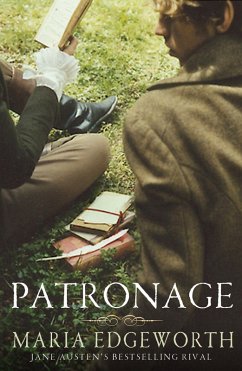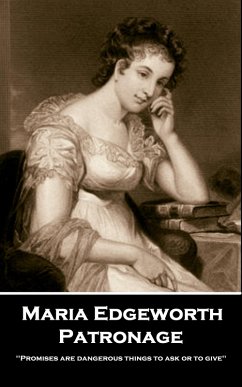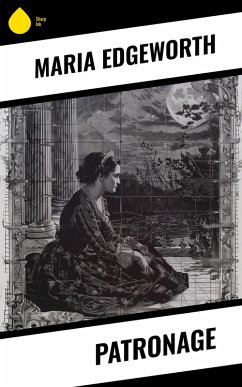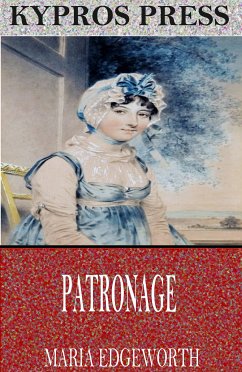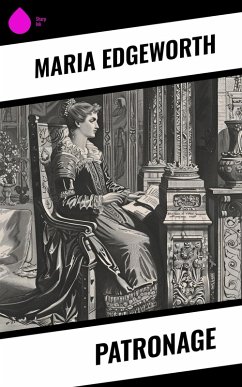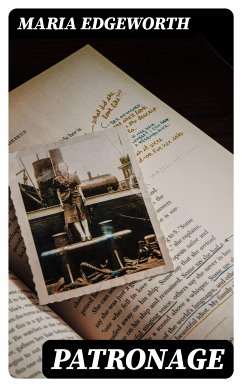
Patronage (eBook, ePUB)
Enriched edition. Regency Romance Classic
Kommentar: Wells, Ryan / Redaktion: Good Press

PAYBACK Punkte
0 °P sammeln!
Maria Edgeworth's "Patronage" is a keenly observed exploration of the intricate relationships between social class, patronage, and personal aspirations in early 19th-century England. The novel navigates the turbulent waters of its characters' lives with a deft blending of realism and moral complexity, showcasing Edgeworth's signature literary style, characterized by wit, psychological insight, and a reflective narrative voice. Set against the backdrop of a rapidly changing society, the plot intricately examines the influence of wealth and social status on personal integrity, ultimately posing ...
Maria Edgeworth's "Patronage" is a keenly observed exploration of the intricate relationships between social class, patronage, and personal aspirations in early 19th-century England. The novel navigates the turbulent waters of its characters' lives with a deft blending of realism and moral complexity, showcasing Edgeworth's signature literary style, characterized by wit, psychological insight, and a reflective narrative voice. Set against the backdrop of a rapidly changing society, the plot intricately examines the influence of wealth and social status on personal integrity, ultimately posing profound questions about the nature of merit and the consequences of reliance on external validation. Maria Edgeworth, a pioneering figure in the development of the English novel, was deeply influenced by her own experiences within the socially stratified landscape of Ireland and England. Her dedication to education and social reform resonates throughout her works, including "Patronage," where the interplay of societal constraints and individual desires reflects her commitment to the principles of practical morality and rational thought, positioning her as a forerunner of feminist thought and social critique. Readers seeking a nuanced perspective on the dilemmas of an evolving society will find "Patronage" to be a compelling narrative. Edgeworth's astute observations and richly drawn characters invite readers to reflect on their own values and assumptions, making it an essential read for anyone interested in the intersections of literature, society, and ethics. In this enriched edition, we have carefully created added value for your reading experience: - A succinct Introduction situates the work's timeless appeal and themes. - The Synopsis outlines the central plot, highlighting key developments without spoiling critical twists. - A detailed Historical Context immerses you in the era's events and influences that shaped the writing. - An Author Biography reveals milestones in the author's life, illuminating the personal insights behind the text. - A thorough Analysis dissects symbols, motifs, and character arcs to unearth underlying meanings. - Reflection questions prompt you to engage personally with the work's messages, connecting them to modern life. - Hand-picked Memorable Quotes shine a spotlight on moments of literary brilliance. - Interactive footnotes clarify unusual references, historical allusions, and archaic phrases for an effortless, more informed read.
Dieser Download kann aus rechtlichen Gründen nur mit Rechnungsadresse in A, B, BG, CY, CZ, D, DK, EW, E, FIN, F, GR, H, IRL, I, LT, L, LR, M, NL, PL, P, R, S, SLO, SK ausgeliefert werden.




